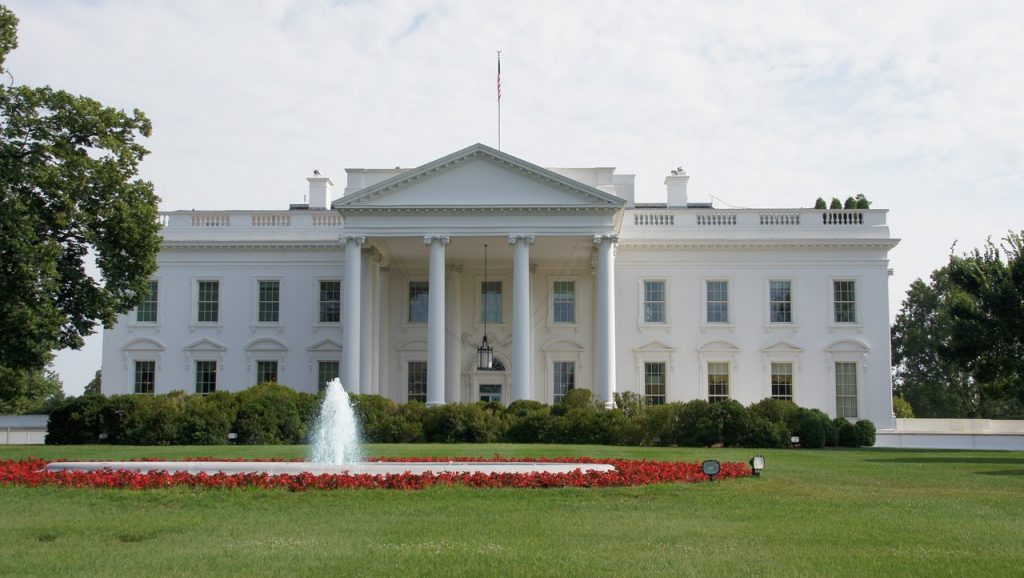Washington: India faces “very significant challenges”, in particular from China and its behaviour in the Line of Actual Control, the White House has said, as it unveiled the Biden administration’s first region-specific report on the strategic Indo-Pacific.
The report on US’s Indo-Pacific Strategy, released Friday, outlines President Joe Biden’s vision to firmly anchor the country’s position in the Indo-Pacific, strengthen the region and support India’s rise and regional leadership.
“We will continue to build a strategic partnership in which the United States and India work together and through regional groupings to promote stability in South Asia; collaborate in new domains such as health, space, and cyberspace; deepen our economic and technology cooperation; and contribute to a free and open Indo-Pacific,” the White House said.
“We recognise that India is a like-minded partner and leader in South Asia and the Indian Ocean, active in and connected to Southeast Asia, a driving force of the Quad and other regional fora, and an engine for regional growth and development,” the White House statement added.
At a White House background briefing, a senior administration official, on condition of anonymity, pointed out that India was facing “significant challenges”.
India, the senior official said, is in a very different place, in many ways than Australia and other countries.
“But India faces very significant challenges. China’s behaviour on the Line of Actual Control has had a galvanising impact on India. From our standpoint, we see tremendous opportunities in working with another democracy – with a country that has a maritime tradition that understands the importance of the global commons – to advance critical issues in the region,” the senior administration official said.
The border standoff between India and China in eastern Ladakh erupted on May 5, 2020, following a violent clash in the Pangong lake area.
“There is tremendous appreciation of the importance and the challenges of strengthening the engagement with India and a recognition that India is a critical strategic partner, and a desire to continue building on the very good work of previous administrations to significantly broaden and deepen that relationship,” the senior official said.
The senior official said the new Indo-Pacific strategy builds on the work of previous administrations and the broader consensus that has emerged on the importance of the Indo-Pacific region.
The senior official said the previous US administrations, including the previous one led by President Donald Trump, had done a great job in the Indo-Pacific region.
The strategic report on the Indo-Pacific was released on a day when a Quad Ministerial was held in Melbourne, Australia where the foreign ministers from Australia, India, Japan and the US on Friday expressed concern over the malign Chinese role in the region.
China, the report said, is combining its economic, diplomatic, military, and technological might as it pursues a sphere of influence in the Indo-Pacific and seeks to become the world’s most influential power.
The Chinese coercion and aggression spans the globe, but it is most acute in the Indo-Pacific, it said.
From the economic coercion of Australia to the conflict along the Line of Actual Control with India to the growing pressure on Taiwan and bullying of neighbours in the East and South China Seas, our allies and partners in the region bear much of the cost of the People’s Republic of China’s (PRC) harmful behaviour, it said.
In the process, China is also undermining human rights and international law, including freedom of navigation, as well as other principles that have brought stability and prosperity to the Indo-Pacific, the strategy said.
“We will strengthen the international system, keep it grounded in shared values, and update it to meet 21st-century challenges. Our objective is not to change China but to shape the strategic environment in which it operates, building a balance of influence in the world that is maximally favourable to the United States, our allies and partners, and the interests and values we share,” it added.
Responding to a question, the senior official told reporters that the last four administrations have played a significant role in improving relations with India.
“With regard to India, we very explicitly highlight the importance of – the importance of what the last four administrations have all played a very important role in advancing, which is the much greater US engagement, much improved US relations with and much closer US partnership with India,” the official said.
“Obviously, India’s role in the QUAD I think is a very significant element of that, including the ability to speak frankly, about issues in the region, to work together to deliver essentially public goods that address the challenges in the region, and to enhance ways in which we can coordinate,” the senior official said.
There are two key elements to the new approach.
First, the goal of this strategy is to strengthen the US role in the region, which the senior official said was very important to the region but obviously very important to America.
Second, the US seek to build the collective capacity to rise to 21st century challenges and seize opportunities, whether that has to do with climate, with PRC behaviour, or preparing for the next pandemic and recovering from the current one.
PTI
